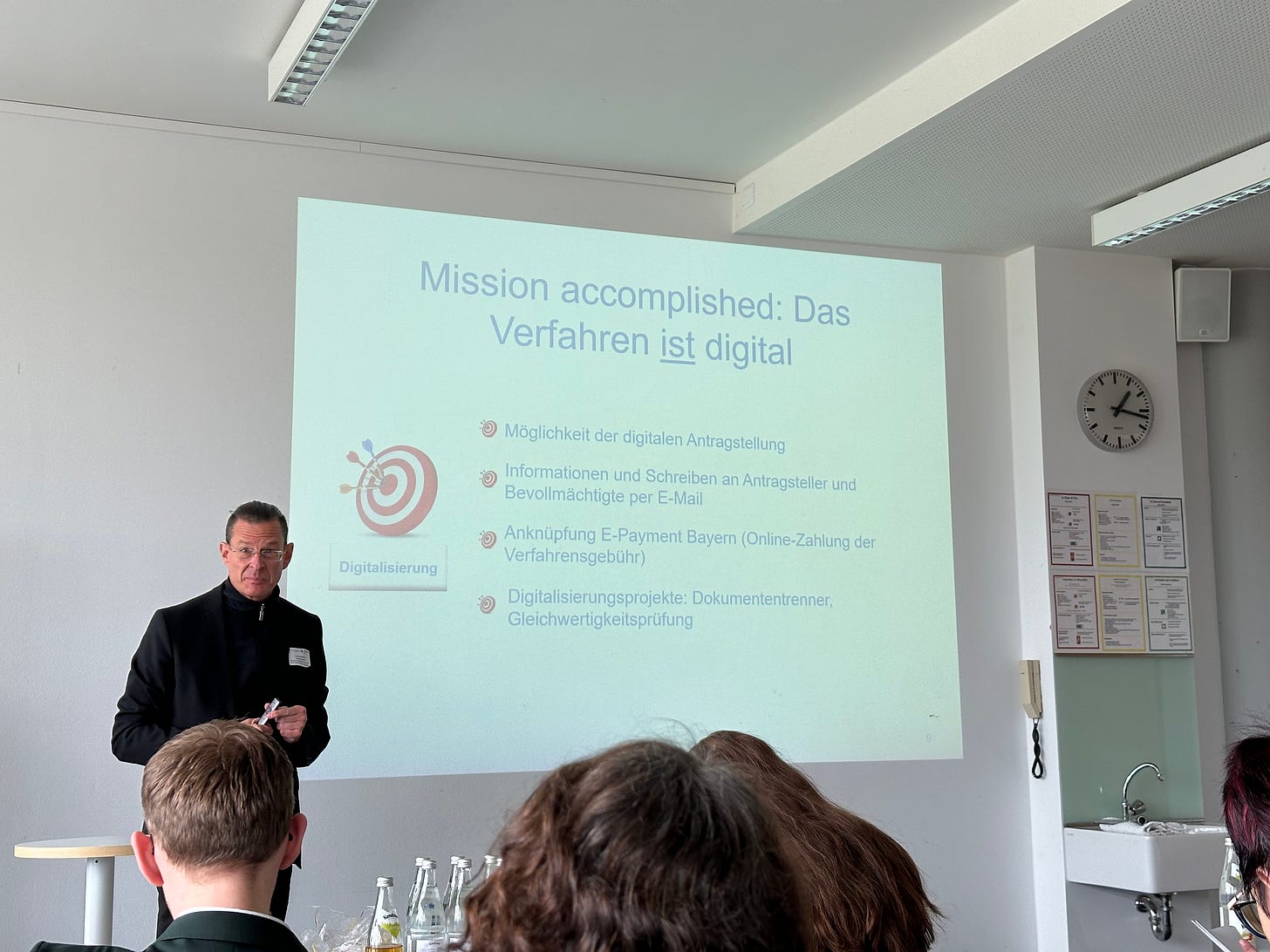“Fast, Simple, Digital”: Bavaria’s Success Formula for Recognising International Nursing Qualifications – A Blueprint for All of Germany
How Bavaria’s “Fast Lane” Model Is Reshaping International Nurse Recognition and Integration Across Germany
Why This Blog Post Matters
Recruitment and sustainable integration of international nursing professionals is a vital topic for hospitals, care facilities, and policymakers across Germany. In particular, the Regierungspräsidium Stuttgart should pay close attention here, because Bavaria is taking new approaches in “Professional Recognition and Integration” — featuring rapid processing times, centralized structures, and a fully digital process that other states can easily replicate.
1. The Starting Point: Urgent Nursing Shortage and Complex Recognition Procedures
Germany’s demographic changes and increasing shortage of nursing staff mean that more foreign-qualified nurses are being recruited.
Up to now, recognition processes for foreign diplomas have been long, complicated, and inconsistently organized, varying by federal state.
Bavaria has now shown that there is a better way, driven by its guiding principle: “Fast, simple, digital.”
2. Centralization as the Key: One Office for All Applications
One core element of Bavaria’s “Fast Lane” model is the consolidation of all recognition procedures at the Bavarian State Office for Nursing (LfP) and the Central Office for the Immigration of Skilled Workers (ZSEF) for all foreign-residence-related matters. Instead of dealing with seven different district governments and authorities, everything now goes through just one central office.
Advantages of Centralization
Accelerated Processing Times: Reduced from about 12 weeks to sometimes under five weeks.
Harmonized Decisions: Uniform standards for recognition notices; less bureaucracy.
Digital, Not Paper-Based: Applications and documents can be submitted entirely online.
3. Less Red Tape Thanks to Digitization
The days of certified copies, apostilles, and time-consuming in-person office visits are largely over in Bavaria.
Documents can be submitted as scans or smartphone photos.
E-Payment simplifies the payment of the modest administrative fee (usually €40–€80).
Accompanying documents are written in plain language (including English summaries), providing clear guidance.
For Baden-Württemberg or any other federal state, this directly suggests taking action: reduce unnecessary form requirements, introduce online application portals, and avoid complex certification procedures wherever possible.
4. Equivalence Assessment: Individual but Standardized
When a foreign qualification is submitted, the Bavarian State Office for Nursing reviews the content:
Training hours from the country of origin
Work experience and any additional training
Comparison with the German nursing training curriculum
The result of this assessment leads to a three-tier “deficit” or “gap” system (small, medium, or large). Alternatively, some applicants waive this detailed comparison — but that means they must complete a larger adaptation program.
Tip for Other Federal States
Use standardized tools (e.g., digital Excel-based methods) to uniformly assess qualifications.
Integrate professional experience and continuing education into the process to recognize individual skills.
5. More Than Bureaucracy: The “Bavarian Toolbox”
A quick recognition notice alone is not enough to ensure that international nurses stay long-term. Bavaria has created the “BIM (Bayerischer Baukasten Integrationsmanagement)” for precisely that purpose.
Goals
Structured Orientation in German nursing practices, law, and culture
Strengthening intercultural teams and preventing conflicts
Promoting networks among employers, education providers, and counseling centers
This holistic approach can also be adopted by the Regierungspräsidium Stuttgart or any other federal authority, by collecting best practice examples of integration concepts and establishing centralized offices to coordinate the effort.
6. What Other Federal States Can Adopt Right Away
Centralization
One competent authority for recognition plus a complementary authority for residence and visa matters.
Digitization
A fully online platform for all application documents and e-only communication instead of postal mail.
Uniform Standards
Standardized recognition notices and a three-level model for adaptation programs.
Service & Language
Better information materials with checklists in multiple languages.
Integration Focus
A toolbox of guidelines for integration (language courses, bridging programs, social support).
7. Looking Ahead: A “Fast Lane” for Germany?
In addition to nursing, other healthcare professions (e.g., physiotherapists, MTA roles) also face critical staff shortages. In Bavaria, as of this summer, accelerated procedures will be extended to 16 additional healthcare professions—a forward-looking step for all of Germany.
Conclusion
Bavaria has demonstrated that accelerated and simplified recognition procedures make Germany more attractive to international nurses and significantly ease the burden on the healthcare system. Other states—like Baden-Württemberg, with its Regierungspräsidium Stuttgart—can replicate this approach without hassle.
For more information, visit the Bavarian State Office for Nursing website for comprehensive checklists, info sheets, and contact details. A sustainable solution to the nursing shortage is only possible if recognition, integration, and digitization work hand in hand.



